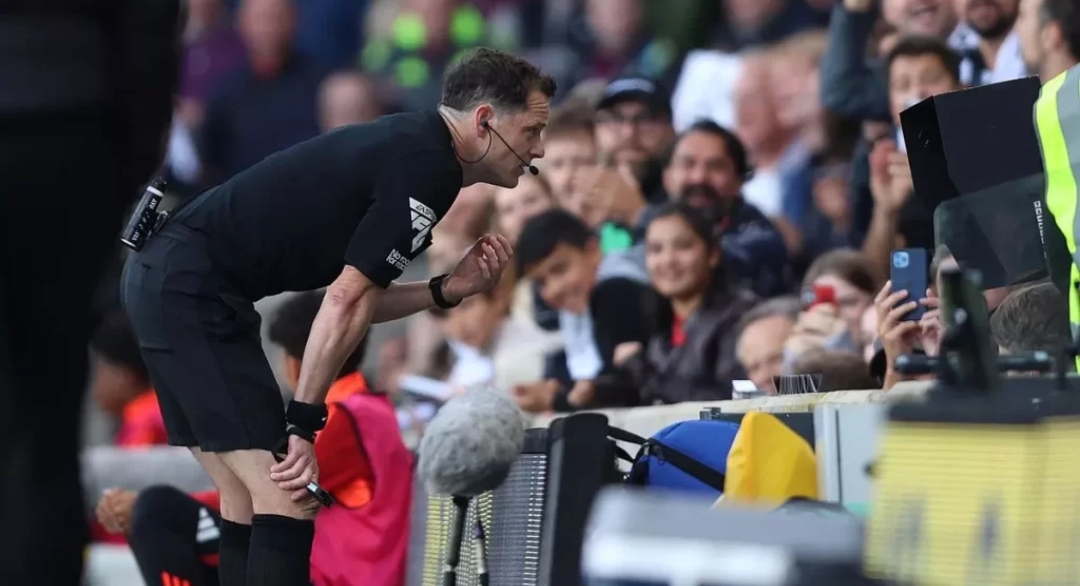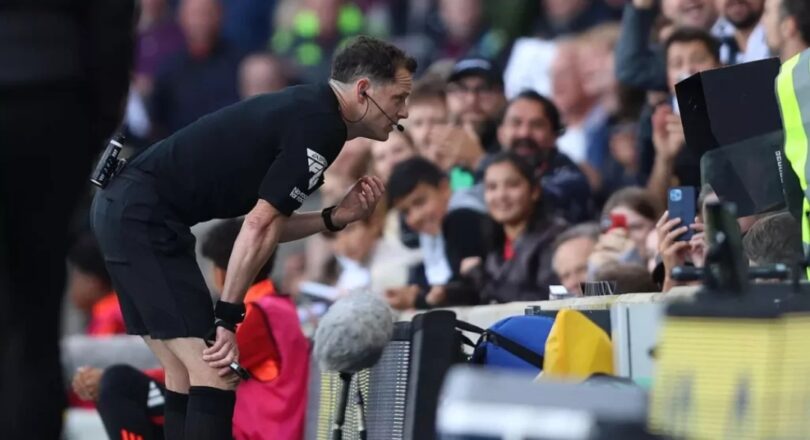VAR has remained a source of controversy this season in the Premier League but PGMOL suggest changes implemented have seen an improvement in using technology for 2024/25. VAR delays have dropped dramatically in the Premier League this season.

The Professional Game Match Officials Limited (PGMOL) say the average delay in a match so far this season is down to 28 seconds-per-game. That is down significantly on last season as the average was 74 seconds-per-game over the course of the whole season.
It is a benefit of a general directive of referees being told to stick with on-field decisions this season rather than officials being sent to VAR screens or also having decisions undergoing video reviews. Intriguingly, there were EIGHT on-field reviews in this weekend’s last round of Premier League fixtures.
Referees Rob Jones and John Brooks both changed their original decisions in high-profile games at Bournemouth which resulted in Arsenal ’s William Saliba being sent off and Brooks chalked off a second penalty awarded to Liverpool after checking the VAR screen.
But the PGMOL insist there has been no shift in policy and no return to last season when there were more checks and more video screen reviews.
Instead, there is a feeling that going with more referee decisions and only intervening on “clear and obvious errors” have speeded up games this season and reduced delays.
Referee Andrew Madley upgraded an original yellow card to red for West Ham ’s Mohammed Kudus after he lashed out at Spurs players in a melee in the London derby at Tottenham.
Arsenal decided not to appeal Saliba’s red card despite it being a subjective decision and a feeling at the club that they could have stuck with Jones’ original decision.
PGMOL chief Howard Webb boasted last week that there have only been two obvious VAR errors which were Dango Ouattara’s disallowed goal for Bournemouth against Newcastle and Manchester United star Bruno Fernandes ’ red card against Tottenham.
That, according to the PGMOL, represents an 80 per cent improvement as there had been ten errors after seven match rounds last season.
Webb has tried to introduce more specialist VAR teams this season and reduced the number of VARs to try and make decisions and interventions more consistent.
The Premier League is also set to introduce semi-automated offside technology this season which should further reduce delays in games. Each goal leads to an average delay of 67 seconds because of celebrations.




